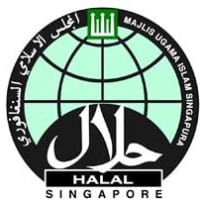 SINGAPORE – A probe by the Corrupt Practices Investigation Bureau (CPIB) into allegations of corruption levelled against a staff member of the Islamic Religious Council of Singapore (Muis) involved in halal certification works has concluded with no evidence of wrongdoing.
SINGAPORE – A probe by the Corrupt Practices Investigation Bureau (CPIB) into allegations of corruption levelled against a staff member of the Islamic Religious Council of Singapore (Muis) involved in halal certification works has concluded with no evidence of wrongdoing.
The findings follow internal investigations last year by Muis which found allegations of abuse of power were unfounded.
In a statement on Wednesday (June 30), the council said: “CPIB has since informed that they will not take any further action with regard to the allegations of corruption involving the Muis officer in view of insufficient evidence, based on the information submitted by various parties and their investigations.”
Muis had in December last year referred the allegations of corruption it received to the CPIB “in the interest of accountability and transparency”.
It had also conducted internal investigations, after receiving complaints between April and May last year, and found no instance of abuse of power. It further established that the recognition process for foreign halal certifying bodies (FHCB) was sound.
These findings were reviewed by the Ministry of Culture, Community and Youth.
FHCBs are organisations Muis deems to have similar standards to its own when it comes to halal certification, and whose products are certified as halal, or fit for consumption by Muslims here, when imported into Singapore.
These organisations charge producers and manufacturers in their own countries a fee to certify products exported to Singapore as halal.
The complaints emerged after Muis started a process last year to delist some FHCBs. Articles in the Hong Kong-based news outlet Asia Sentinel then accused the council of showing favouritism in its recognition of FHCBs.
Since April last year, Muis made several public statements in response to the allegations but more articles in Asia Sentinel as well as other online outlets repeated and furthered the accusations.
On May 29, 2020, Muis issued a statement inviting members of the public to submit information and evidence to assist the investigations. It received a total of 49 submissions from FHCBs and members of public.
A month later, Muis said that an internal investigation team as well as an independent review panel were established to review the allegations.
The investigations concluded that all recognition, renewal or delisting of FHCBs had followed approved internal protocols, and the accused Muis officer had neither approved nor delisted any FHCB based on his personal discretion.
There were reasonable, objective grounds for the delisting of FHCBs and proper approvals were obtained, added Muis.
In its statement on Wednesday, Muis repeated that it takes all complaints and allegations seriously, and urge the public to raise any issues needing attention directly to the council.
“Reports of any wrongdoings by officers in Muis will be investigated properly. Speculations in social media may even compromise the investigation process and have a detrimental impact on the reputation and morale of officers alleged even if later proven unfounded,” said Muis.
It is currently reviewing the FHCB recognition scheme, which it said is a response to how the halal business landscape has evolved significantly. The council intends to implement changes arising from this review by the end of 2021.
“Muis would also like to update that a comprehensive review to further strengthen the FHCB recognition framework has made good progress. Muis also plans to engage relevant stakeholders to seek their feedback on the enhanced framework before it is implemented by the end of 2021,” it added.


